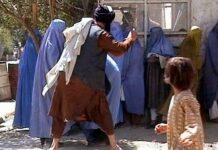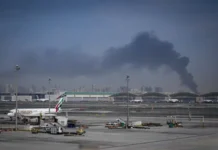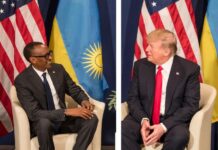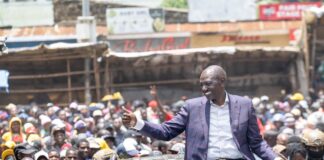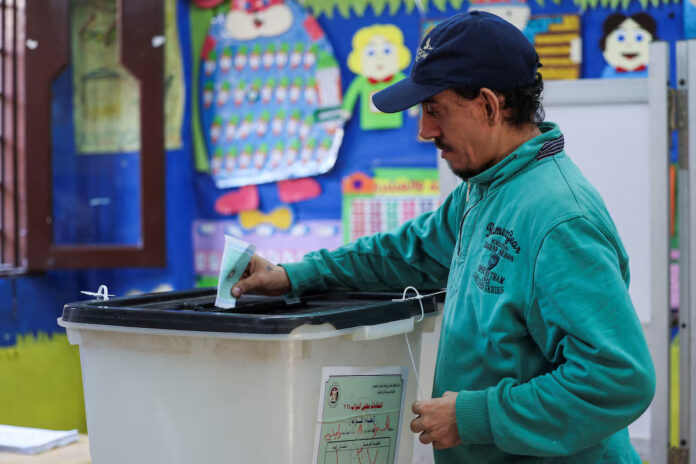
Egypt’s parliamentary elections began on Monday with a crowded field of political parties but little genuine competition, as nearly all major groups contesting the vote are aligned in their support for President Abdel Fattah al-Sisi.
The polls come nearly two years after Sisi secured a third and final six-year term under Egypt’s current constitution. Voting is being conducted in multiple phases over more than five weeks, marking the first parliamentary elections since his re-election.
Although campaign banners line streets and traffic circles with a dozen party logos, a scene reminiscent of the post-2011 Arab Spring era, the political atmosphere is markedly different.
Unlike those years of intense ideological rivalry, today’s parties are broadly united behind the president, seeking to rally a disengaged electorate amid widespread apathy and economic strain.
This year’s elections employ a hybrid voting system that allocates just under half of parliamentary seats to closed party lists. However, only one list made it onto the ballot, one dominated by three pro-government parties, leaving many lawmakers effectively assured of victory before votes were even cast.
Several opposition candidates, including ultraconservative Islamists and leftists, were barred from running under a new interpretation of military service requirements, while high campaign costs and mandatory medical screenings excluded others.
Critics say such restrictions have deepened voter indifference; turnout for the upper house elections earlier this year barely exceeded 17%.
At a polling station in Giza, 58-year-old electrician Amgad said he had been brought by campaign workers to vote but was uncertain for whom. “All the delegates work together,” he said.
Authorities maintain that the closed lists promote diversity and guarantee representation for women and minorities, denying accusations of manipulation.
The State Information Service (SIS), which liaises with foreign media, did not immediately respond to requests for comment.
While former president Hosni Mubarak’s National Democratic Party once monopolized power, Sisi himself has never joined any political party.
His allied group, Nation’s Future Party, is expected to lose ground following upper house results that saw significant gains for the newly formed National Front Party.
Launched late last year, the National Front describes itself as “neither loyalist nor opposition.” Its co-founder, Diaa Rashwan, who also heads the SIS, said in a televised interview that the group is a “unifying entity” encompassing diverse views.
Other major players on the ruling list include the Nation’s Future Party and the Homeland Defenders, founded in 2013 by former military officers.
Homeland Defenders spokesperson Amr Suleiman said the party aims to implement “a long-term developmental vision aligned with the state’s leadership.”
Analysts say the rise of multiple pro-government parties serves to consolidate Sisi’s control while diluting any single group’s influence.
“Going from one dominant party to a collection of loyalist ones helps centralize authority and reward new loyalists,” said Timothy Kaldas of the U.S.-based Tahrir Institute for Middle East Policy.
Opposition parties have faced a strategic bind, join the pro-government list or risk exclusion. The Social Democratic Party opted in, arguing that it could still influence parliamentary proceedings.
“We’re not going to waste the opportunity to shape policy from within,” said MP Maha Abdel Nasser.
Others, like the Constitution Party founded by Nobel laureate Mohamed ElBaradei, have chosen to compete independently.
Running in partnership with the Conservative Party, their campaign has struggled against “political money” and voter fatigue, spokesperson Mariam Farouk said.
As the first round of voting unfolds, the outcome appears predetermined: a new parliament filled with competing party logos but unified in support of one man, President Abdel Fattah al-Sisi.
Source: Reuters
Written By Rodney Mbua












